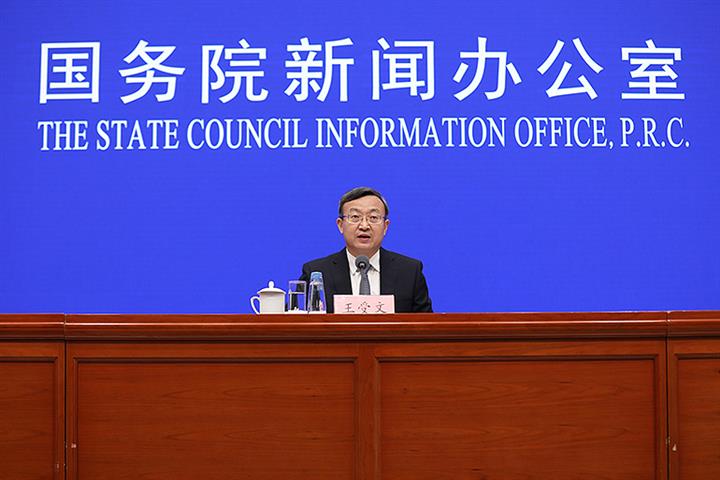 Free Trade Zones Made Up Nearly 17% of China's Nine-Month Foreign Trade, Vice Minister Says
Free Trade Zones Made Up Nearly 17% of China's Nine-Month Foreign Trade, Vice Minister Says(Yicai Global) Oct. 28 -- China’s 21 pilot free trade zones accounted for almost 17 percent of the country's foreign trade volume during the first nine months of this year from a year ago amid an increasing scale of special zones to boost cross-border dealmaking, according to a vice minister.
The FTZs, which account for 0.4 percent of China's land area, made up more than 18 percent of the country's use of foreign capital between January and September, Vice Commerce Minister Wang Shouwen said during a development forum in Hangzhou yesterday.
Last year, China established three new pilot FTZs in Beijing, as well as in Hunan and Anhui provinces. Moreover, Zhejiang province's FTZ was expanded. The nation currently has six groups of pilot FTZs, or a total of 21 individual FTZs, covering 67 areas.
Last year, the first five batches of 18 pilot free trade zones achieved a total of CNY4.7 trillion (USD734.3 billion) in import and export volume, making up a bit less than 15 percent of China's final tally. During the 12 months, the zones used CNY176.4 billion (USD27.6 billion) in foreign capital, or almost 18 percent of the country's total. Almost 6,500 new foreign-funded firms were established in these areas, accounting for nearly 17 percent of the nation's new additions.
Pilot FTZs should accelerate institutional innovation through reforms, and continue to expand the level of opening-up, Gu Xueming, director of the Chinese Academy of International Trade and Economic Cooperation, said to Yicai Global in an interview.
"It is recommended that relevant pilot FTZs should promote bold innovations and initiatives to expand opening-up based on some standards of the Comprehensive and Progressive Agreement for Trans-Pacific Partnership,” said Gu.
“The report summarizes the latest progress of institutional innovation in various FTZ fields," said Yang Yudong, editor-in-chief of Yicai Media Group. "It can help FTZs across China to learn from successful cases in other regions while carrying out more differentiated and original explorations based on their own realities,” Yang added.
As China has become the world’s second-largest economy, it has also entered the stage of participating in and leading the development of high-standard global economic and trade rules, said Yang.
FTZ reform and innovation should enter a new stage, per Yang. The zones should study the international high-standard investment and trade rules to seek the focus of exploration first, and contribute to China’s participation and leadership in high-standard global economic and trade rules via effective experiments, he added.
Editor: Xu Wei, Emmi Laine